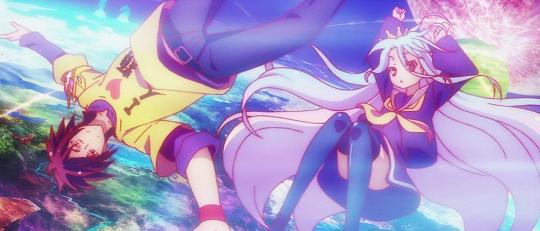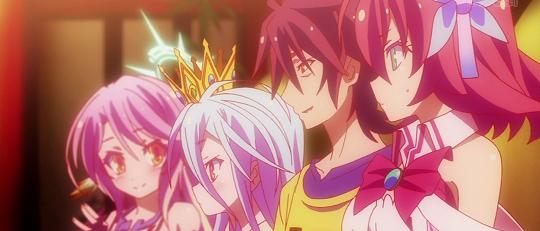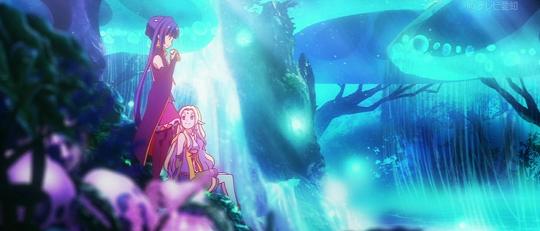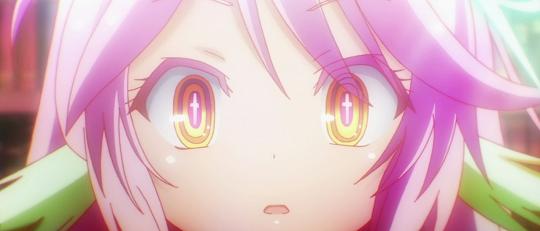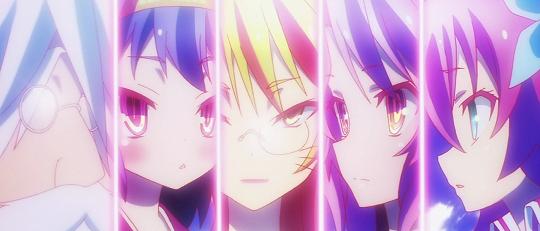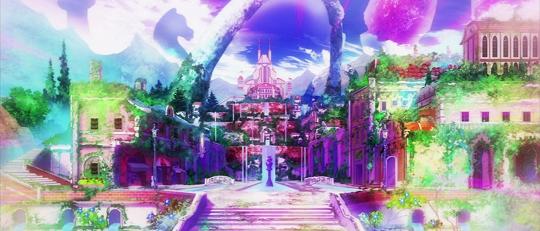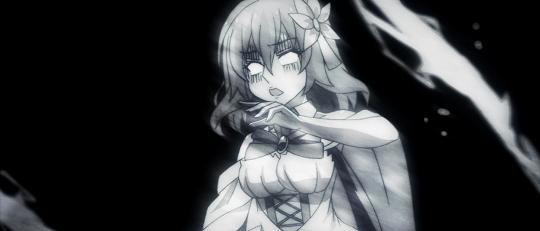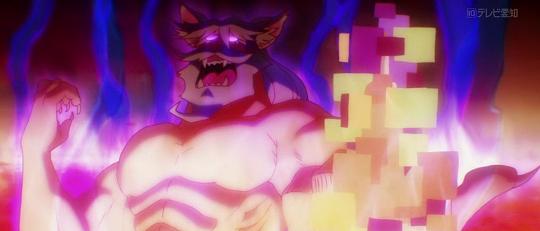A review of the Ryuugajou Nanana no Maizoukin anime series
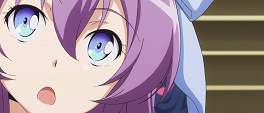



I’ve found myself saying numerous times before in reviews that how a series starts isn’t necessarily how it continues. Putting aside first episode budget splurges, the tendency to cram as much into those first precious twenty or so minutes means that sometimes story, characterisation and continuity can be left by the wayside. Often this is just an innocent enough attempt to grab attention before settling in to a more measured pace. Ryuugajou Nanana no Maizoukin (Nanana’s Buried Treasure) is only the second series I can think of - the other being the underappreciated Ga-Rei Zero - that purposefully builds up your expectations and then mercilessly subverts them.
Enter Juugo, our slightly meat-headed protagonist who has just run away from home and travelled to the ultra-modern island built according to the vision of one girl genius. When he moves into his modest apartment he finds out, to his horror, that it is already occupied by the ghost of a young, beautiful girl. Whatever will he do? Chair back, spin down brain, prepare for quirky love comedy where Juugo finds out who killed this girl and bittersweet love blossoms. First episode closing credits roll, commence disinterested “hmph”.
Read the rest of this entry
A review of the Black Bullet anime series
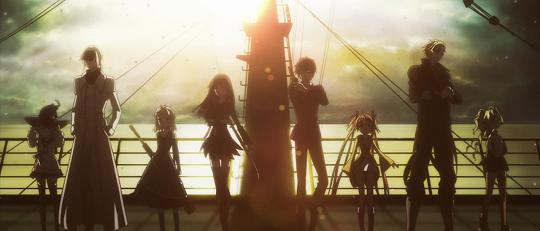
Won’t someone please think of the children? Because that’s really all Black Bullet thinks about. Right at the heart of its world, ravaged by the giant insects known as Gastrea, is an employment structure that partners young men, “Enforcers”, with pre-adolescent girls, “Initiators”. Those children are of course genetically altered so to complement their red eyes they have phenomenal speed and strength, enough to fight the rampaging insects.
the high fructose pairing of Rentarou, serial loli magnet and perpetual do-gooder, and the sparky orange-haired Enju
You might just sigh and slowly shake your head at such a set up - it’s peculiarly original yet feels overused, tapping into the same buddy-cop dynamic that innumerable other shows, anime or otherwise, have used. What’s worrying is that in between all of the bad CG, B-movie style monster bashing is a worrisome, suggestive undercurrent that slowly, insidiously, creeps in. There’s maybe just one too many bath scenes, a few too many expressions of unflinching adoration, and too many children saying things that can be misconstrued as sexual.
Read the rest of this entry
A review of the Gokukoku no Brynhildr anime
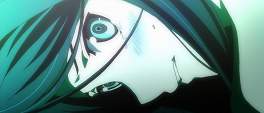
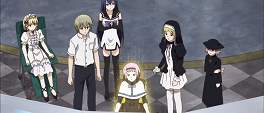

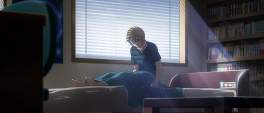
There’s not even anyone called Brynhildr in Gokukoku no Brynhildr (Brynhildr in the Darkness), let alone being in the dark. It’s far from the only misleading thing about the series but it’s a good enough place to start. Unless you’ve seen Elfen Lied, in which case it’s probably worth stating that Brynhildr is by the same author and has the same kind of sadistic nonchalance towards human life but without the puppy killing or fascination with urination.
Anyway. Witches exist, except they’re technological rather than magical so they have an implant rather than a broomstick, and several have escaped imprisonment and now cluster around the interminably dense male lead, Ryouta Murakami. Stuff happens, breasts are exposed, stupidity is enacted, and witches die. And when they do they melt into a puddle of poorly censored goo. Oh what a world. What. A. World.
Read the rest of this entry
A review of the Mekakucity Actors anime
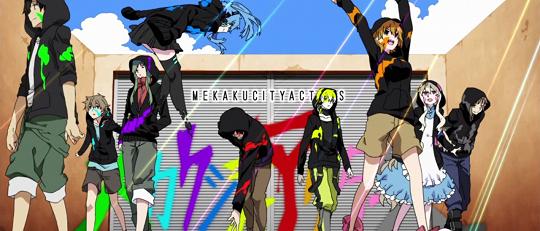
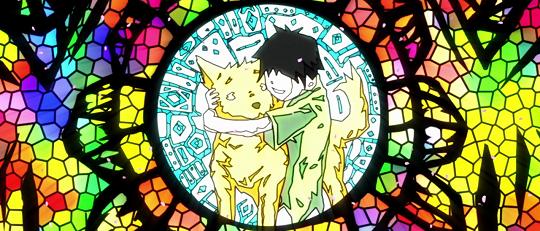
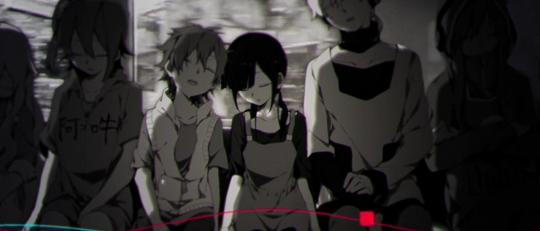
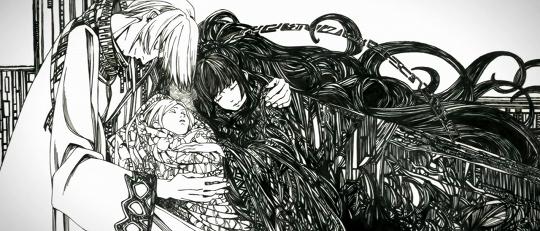
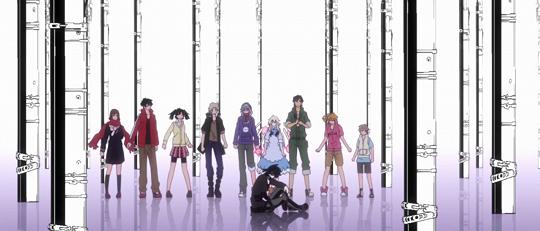
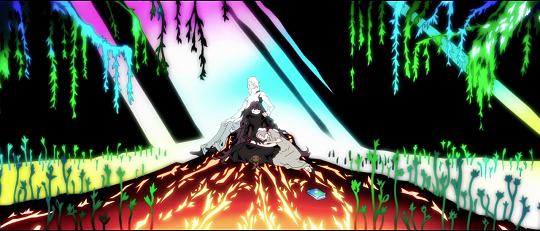

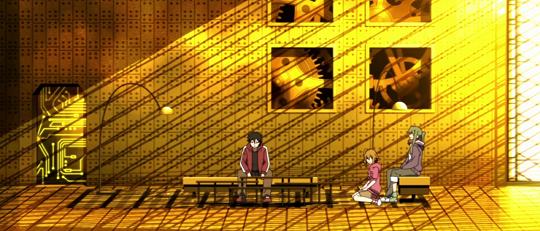
The elephant in the room whenever I’m talking about a series like Monogatari, ef, Sasami-san@Ganbaranai or, in this case, Mekakucity Actors, is the director Akiyuki Shinbo. I have tried and usually failed to address that elephant when reviewing his shows yet each one he does without sharing directing duties is indelibly stamped with his unique vision. My issue being that despite his obvious talent and corruscating view of the world, it takes an enormously strong story to match that style. Mekakucity Actors does not have that.
an obnoxious mash-up of a vocaloid and the Microsoft Word paperclip
Madoka did which is why it’s difficult not to maintain the niggling suspicion that it was so successful despite the director rather than because of him. He is consistently strong when it comes to aesthetics, with allegories and metaphors bubbling contentedly beneath the surface but with Mekaku it’s nothing we haven’t seen before. There’s the fascination with time and cogs with crooked clock towers and giant hourglasses littering the landscape and drenched in neon like a futuristic Salvador Dali. Sunsets and stained glass windows frame moody looking teenagers holding books and cocking their heads with signature aloofness.
And I have no idea what’s going on.
Read the rest of this entry
A review of the No Game No Life anime series

















